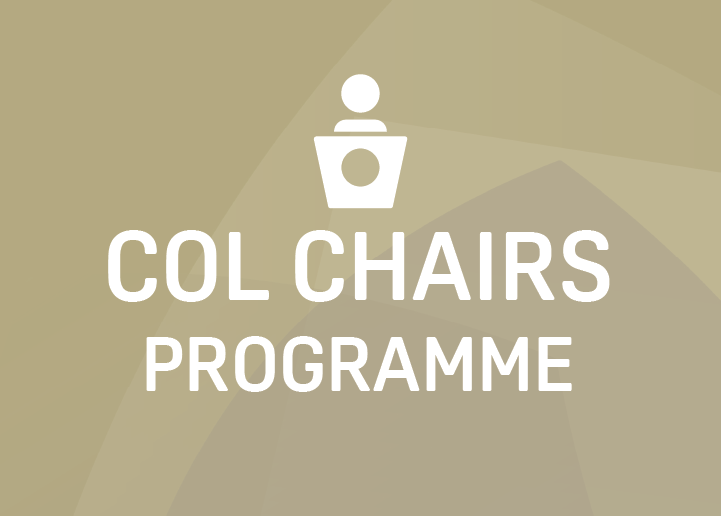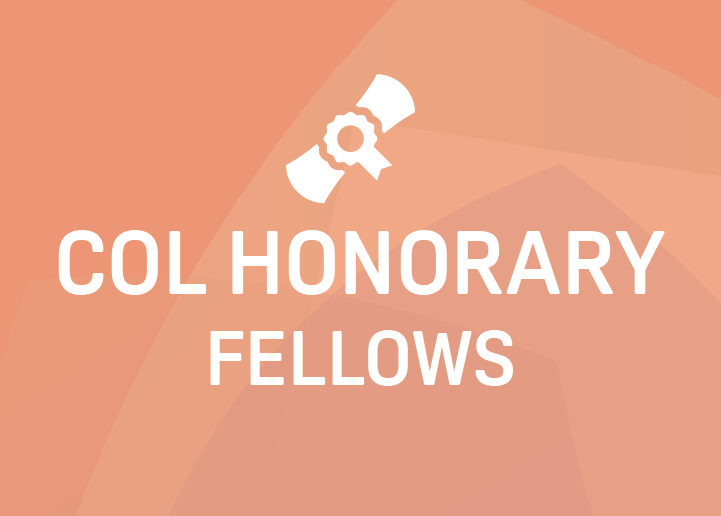The Commonwealth of Learning is an intergovernmental organisation established by the Commonwealth Heads of Government “to strengthen member countries’ capacities to develop the human resources required for their economic and social development.”
History of the Commonwealth of Learning
Key Milestones
1987
- At their meeting in Vancouver, Commonwealth Heads of Government agreed to create Commonwealth institution to promote co-operation in distance education, with major funding pledges from Brunei Darussalam, Canada and the Province of British Columbia, India and Nigeria.
1988
- The Working Group, appointed to develop institutional arrangements for Commonwealth co-operation in distance education and chaired by [Sir] John Daniel – the “Daniel Report” – recommended the creation of the Commonwealth of Learning with headquarters in Vancouver, Canada and an information service based at the The Open University, UK.
- On 1 September, Commonwealth Governments signed a Memorandum of Understanding on the establishment of The Commonwealth of Learning (COL).
- COL’s first Board of Governors was appointed, under the chairpersonship of the Rt. Hon. Lord Briggs of Lewes (Asa ).
1993
- COL launched its World Wide Web site on the Internet – one of the first organisations in the world to do so.
1994
- COL established The Commonwealth Educational Media Centre for Asia (CEMCA) in India, hosted at the Indira Gandhi National Open University (IGNOU).
1996
- COL’s Educational Technology 2000 conference was held in Singapore in August, bringing together nearly 200 participants from 38 (mostly Commonwealth) countries.
1998
- COL held a consultation on regional collaboration in Vancouver in January, with participation from ministers and senior education officials from Botswana, Malawi, Namibia, South Africa, Tanzania and Zimbabwe.
- COL hosted a first-ever series of four “virtual pre-conferences” as a lead up to the First Pan-Commonwealth Forum on Open Learning.
1999
- COL’s First Pan-Commonwealth Forum on Open Learning (PCF1) was held in Bandar Seri Begawan, Brunei Darussalam from 1 to 5 March, in partnership with the Brunei Darussalam Ministry of Education and Universiti Brunei Darussalam, attracting 400 delegates from 50 countries.
2000
- The Halifax Statement on Education in the Commonwealth, issued in November by Commonwealth Ministers of Education, requested COL to pursue the establishment of a virtual university for small states of the Commonwealth.
2002
- COL’s were introduced at four South Asian partner open universities.
- The Second Pan-Commonwealth Forum on Open Learning (PCF2) was held in Durban, South Africa from 29 July to 2 August, in partnership with the Ministry of Education and The National Association of Distance Education Organisations in South Africa (NADEOSA). A total of 650 delegates from 55 countries were in attendance.
2004
- The Third Pan-Commonwealth Forum on Open Learning (PCF3) was held in Dunedin, New Zealand, from 4 to 8 July, in partnership with the Distance Education Association of New Zealand (DEANZ) and the Government of New Zealand. Over 400 educators and policymakers from more than 50 countries attended the Forum.
- Twenty small states of the Commonwealth accepted COL’s invitation to participate in the newly created consortium, the Virtual University for Small States of the Commonwealth (VUSSC).
2005
- COL launched Lifelong Learning for Farmers, an innovative model of agriculture extension using information and communications technologies (ICTs) and micro-finance, in India.
- The Regional Training and Research Institute for Open and Distance Learning (RETRIDOL)opened at the National Open University of Nigeria as a Centre of Expertise in ODL for West Africa.
- The Southern Africa Regional Distance Education Centre (SARDEC) was established and subsequently renamed the Southern African Development Community – Centre for Distance Education (SADC-CDE).
2006
- The Fourth Pan-Commonwealth Forum on Open Learning (PCF4) was held in Ocho Rios, Jamaica from 30 October to 3 November, in partnership with the Caribbean Consortium comprising of CARADOL, JADOL, TTDLA, CEODL and UWIDEC. More than 500 delegates from 64 countries were in attendance.
2008
- The Fifth Pan-Commonwealth Forum on Open Learning (PCF5) was held in London, UK from 13 to 17 July, in collaboration with the University of London. More than 700 delegates from 70 countries attended the Forum.
2009
- COL signed a collaboration agreement with the Commonwealth Secretariat, in July, further harmonising their work in education.
2010
- The Sixth Pan-Commonwealth Forum on Open Learning (PCF6) was held in Kochi, India from 24 to 28 November, in partnership with the Indira Gandhi National Open University (IGNOU). More than 600 delegates from 70 countries attended the Forum.
- UNESCO and COL launched the initiative Taking OER Beyond the OER Community: Policy and Capacity with a view to raising the awareness of educators around the world to the potential of OER.
2012
- UNESCO and COL launched the Paris Declaration expressing commitment to supporting the use of OER to expand access to education. The Declaration was approved at the World OER Congress in June.
2013
- COL announced the launch of an online scholarly journal – Journal of Learning for Development (JL4D) – that aims to provide a forum for practitioners and academics working in education and development to share knowledge and experience.
- COL and the University of the South Pacific agreed to establish a new Pacific regional centre to raise the profile and support collaboration in open and distance learning.
- The Seventh Pan-Commonwealth Forum on Open Learning (PCF7) was held in Abuja, Nigeria from 2 to 6 December 2013, in partnership with the Federal Ministry of Education and the National Open University of Nigeria (NOUN). Over 600 policymakers and practitioners from 49 countries attended the event.
2014
- COL held a series of regional meetings with its Focal Points as part of a wide consultation to develop a new Strategic Plan.
2015
- In the Strategic Plan 2015 – 2021, COL made a transition from “Learning for Development” to “Learning for Sustainable Development” to align itself to the post-2015 Sustainable Development Goals.
- COL organised the Eastern Caribbean Open Textbook Forum in Antigua and Barbuda from 26 to 28 October, with participation from education ministries’ officials and teachers from Antigua and Barbuda, Dominica, Grenada, St. Kitts and Nevis, St. Lucia, and St. Vincent and the Grenadines. The Forum focussed on strategies to develop open educational resources (OER) and policies in the region.
2016
- The Eighth Pan-Commonwealth Forum on Open Learning (PCF8) was held in Kuala Lumpur, Malaysia in partnership with Open University Malaysia from 27 to 30 November. More than 500 participants from 59 countries were in attendance. Forum delegates adopted the Kuala Lumpur Declaration with a set of recommendations for governments, institutions, civil society and the private sector.
- COL organised a regional OER consultation for Asia in Kuala Lumpur, Malaysia, from 1 to 2 December in advance of the 2nd World OER Congress.
- With support from Global Affairs Canada and the Department of Foreign Affairs and Trade, Australia, COL launched GIRLS Inspire, an initiative for hard-to-reach women and girls in five Commonwealth countries to help them achieve their potential through learning.
2017
- Regional OER consultations were organised in Malta (23-24 February), Qatar (27-28 February), Mauritius (2-3 March), Brazil (3-4 April), New Zealand (29-30 May).
- COL partnered with UNESCO, The William and Flora Hewlett Foundation and the Government of Slovenia to organise the 2nd World OER Congress, in Ljubljana, Slovenia from 18 to 20 September.
2018
- At the 20th CCEM, in Fiji, the Commonwealth Education Ministers commended COL “for its emphasis on lifelong learning for employment, entrepreneurship and empowerment which supported the ongoing efforts of Member States to achieve SDG4.”
- COL held regional meetings of its Focal Points for Africa, Asia, the Caribbean and the Pacific to strengthen the effectiveness of its work in addressing key priorities for education and training in these regions.
2019
- COL organised the Ninth Pan-Commonwealth Forum on Open Learning (PCF9) in Edinburgh, UK, in partnership with The Open University from 9 to 12 September. Close to 550 policymakers, practitioners and thought leaders from 36 countries attended the event. The Edinburgh Statement by delegates prioritises a series of collective actions aimed to significantly accelerate progress towards the targets of SDG4.
2020
- COL held regional consultations with its Focal Points as part of the development of its new strategic plan (2021-2027).
- COL entered into a partnership with Coursera to facilitate free access to 3,800 courses designed to skill and reskill citizens of Commonwealth Member States for livelihoods in the face of COVID-19.
- In response to the urgency of the situation and the evolving needs across the Commonwealth during the pandemic, COL launches OpenDoor, an international partnership of intergovernmental organisations, institutions, associations and the private sector.
- COL’s new mentorship platform CommonwealthWiseWomen links eminent and successful women professionals with women and girls in underserved communities for developing leadership skills.
2021
- The COL-Coursera partnership, offered in 50 Commonwealth countries, has resulted in over one million course enrolments and over 182,000 certificates.
- COL’s GIRLS Inspire reached over 100,000 vulnerable women and girls, offering them opportunities for better livelihoods.
- On 1 July, COL commenced the implementation of a new Strategic Plan. Developed against the backdrop of the disruption of education systems caused by the COVID-19 pandemic, the Plan reinforces COL’s role as an enabler, capacity builder and a catalyst for educational development.
2022
- First time COL mention was made in Commonwealth Heads of Government Meeting 2022 Leaders’ Statement.
- COL achieved gender recognition in building national resilience to improve governments’ effectiveness in implementing gender-sensitive policies, improving institutional effectiveness in leveraging ODL for gender equality and improving lives and livelihoods.
- The Tenth Pan-Commonwealth Forum (PCF10) on Open Learning was held in Calgary, Canada from 14 to 16 September in partnership with Athabasca University. This first-ever hybrid Forum brought together nearly 500 policy makers, practitioners and thought leaders from 53 countries (42 Commonwealth countries) including the participation of two Prime Ministers, several ministers of education along with a COL-hosted ministerial forum.
2023
- COL held its regional Focal Points meetings to strengthen the effectiveness of its work in addressing key regional and national priorities for education and training in these regions in face-to-face mode.
- New activities launched to promote gender equality and to assist women and girls with skills and opportunities for income generation in countries in Africa and Asia with focused support from Government of Canada.
- COL organised webinars, online courses on Generative AI in education and piloted AI-powered chatbots for learner support.
- Wide range of activities in mainstreaming ODL in the TVET sector including a major workshop with the Agrican Union.





